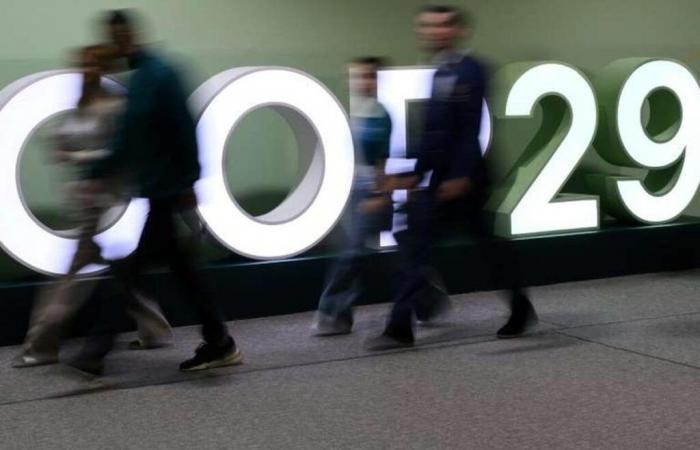Discussions continued into the night from Thursday to Friday, with numerous comings and goings of ministers and diplomats between the offices of the Brazilian, European, American, Chinese delegations… and the Azerbaijani presidency of the summit.
A draft agreement was promised for noon local time (08:00 GMT), according to the presidency of COP29, but the hour has passed without any text being published.
Participants now expect this text to be made public at the last moment, Friday at 6:00 p.m. (2:00 p.m. GMT) according to a negotiator at AFP, the official end time of the COP, which has never been respected. Many expect an extension into the night, or even Saturday.
Negotiators and NGOs criticize the management of the conference by the Azerbaijanis, inexperienced in leading negotiations between nearly 200 countries. “This is the worst COP in recent memory,” goes so far as to say Mohamed Adow, on behalf of the large Climate Action Network.
The central question, at the “Olympic stadium” in Baku, is to determine how much money developed countries, in the name of their historical responsibility for climate change, will agree to transfer to developing countries, to help them face a more climate change. destructive and to invest in low-carbon energies.
“We are only asking for 1% of global GDP. Is that too much to ask for to save lives?” asks Juan Carlos Monterrey Gomez, Panama's negotiator.
Since the summit began on November 11, storms have killed people from the Philippines to Honduras, Spain is licking its wounds after deadly floods, Ecuador has declared a national emergency because of drought and fires… .
– “At least” 500 billion –
The unprecedented background of this 29th COP is a year 2024 which will probably be the hottest ever measured. And, nine years after the Paris agreement, humanity will still burn more oil, gas and coal than last year.
A draft agreement published Thursday morning displeased everyone because, instead of numbers, there were “Xs”, and because it did not decide between two very opposing visions.
It's time for numbers, but how many? “At least” $500 billion a year from developed countries by 2030, demands the largest alliance of developing countries. Compare to the 116 billion in climate finance provided in 2022.
The Europeans, the world's leading contributors, repeat that they want to “continue to lead the way”: a carefully chosen term, coming directly from the Paris agreement, as a sign of goodwill. But budgetary tightening limits their room for maneuver.
The Americans said they were “deeply concerned” about the latest text. European Commissioner Wopke Hoekstra denounced “unacceptable” work and directly challenged the president of COP29, Minister Mukhtar Babaev, a former executive of the Azerbaijani oil company, asking him to show “leadership”.
Americans and Europeans have not yet revealed how much they are willing to pay.
– China refuses any obligation –
“They are going around in circles in their geopolitical games,” lamented Colombian Minister Susan Muhamad.
Developed countries are in fact negotiating more “ambition” to reduce greenhouse gas emissions, but are opposed to oil-producing countries like Saudi Arabia. The Arab group explicitly warned that it would not accept any text targeting “fossil fuels”.
Which is a mess a year after COP28 in Dubai, which called for launching the transition away from fossil fuels.
In public, countries are speaking out. But behind the scenes, Chinese, Westerners, island states… They all still talk to each other.
Irish Minister Eamon Ryan told AFP that “there is space for an agreement”.
China, key to finding the balance between the West and the South, called on “all parties to meet halfway”.
Beijing, however, has drawn a red line: it does not want any financial obligations. There is no question of renegotiating the 1992 UN rule which stipulates that responsibility for climate finance lies with developed countries.
Source: AFP






